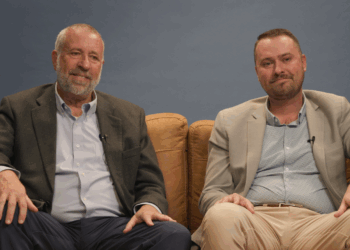Darius Laws is a Conservative councillor in Colchester.
Kemi Badenoch’s conference speech this year was one of the most powerful I’ve heard in a long time — clear, confident, and brimming with conviction. It had that rare sense of purpose that reminds people why they ever cared about politics in the first place. So it’s little wonder that, in the days since, we’ve heard talk of a “surge” in new Conservative Party members.
But before we start congratulating ourselves, it’s worth pausing to ask: what does membership really mean in 2025? And are we genuinely offering people — especially the next generation — anything worth joining for?
I’ve just helped to “relocate” a constituency office, and in the process unearthed a treasure trove of handwritten and typewritten branch minutes stretching back more than a century. As a councillor with over twenty years of door-knocking, leaflet delivering, and campaign organising under my belt, I found it fascinating.
Across those yellowed pages, you can trace the changing social fabric of our movement — the raffles, the sherry evenings, the bring-and-buys, the endless debates over leaflets and letters. And even in the 1980s, the same anxieties appear again and again: How do we get more members? Where are the young people? How do we keep the association alive?
These worries aren’t new. What has changed are the ways people find belonging.
Once upon a time, joining your local Conservative Association wasn’t just about politics — it was about friendship, fun, and a touch of social standing. You didn’t simply sign a form; you joined a circle. But the world has moved on. Now, community can be found with a click. You can “follow”, “like”, or “subscribe” your way into almost any tribe — no minutes, no committees, no titles, no raffle ticket required.
For younger generations, the traditional model feels increasingly remote. Many begin their adult lives weighed down by student debt, struggling with rent, and facing the near-impossible dream of home ownership. They work long hours, often away from where they grew up, with little spare time or spare cash.
So when we ask, “Where are all the young people?” or “Why aren’t more women coming forward as candidates?”, we need to be honest about the fact that the old offer no longer works.
Like every voluntary organisation, the Conservative Party must think harder about what membership gives back. Why should someone in their twenties or thirties part with £39 a year just to be expected to deliver leaflets in the rain at the weekend? What do they actually get in return — apart from a vote in a leadership election (hopefully not anytime soon). A three-course dinner with a dress code at the golf club suits some, but not everyone. Why not try a night at the local microbrewery or distillery — and let someone with deep pockets leave a card behind the bar?
Politics doesn’t always have to be solemn. We talk a lot about values, but people also need value. There’s nothing wrong with a bit of “bread and games”, as the Romans would say. We need to rekindle a sense of value and excitement around being part of the ‘Party’. For some, that might mean access to compelling speakers, dynamic policy discussions, or training that genuinely helps people grow. For others, it might simply mean a carefully curated social event, maybe even an actual party.
We need to meet people where they are — online, in professional networks, and through shared interests. The idea of the “local association” remains vital, but it must evolve. A more flexible model, where digital participation complements physical activism, would widen the tent and help younger members fit involvement around their lives. Investing in young people isn’t charity — it’s strategy. The members you recruit at 25 are the councillors, campaign managers, and candidates of 2040. We often talk about the long game in politics — well, this is it. Business understands the value of a loss leader: offering real incentives early on. After all, there’s a reason NatWest once offered a “free” railcard to students who opened an account — my NatWest card is still in my wallet 25 years later!
So yes, let’s celebrate a post-conference surge in sign-ups. But let’s also make sure those new members find something worth staying for — and a movement they truly feel part of. Because if the Conservative Party is to have a future beyond the next election, we must make membership meaningful again.








![Florida Officer Shot Twice in the Face During Service Call; Suspect Killed [WATCH]](https://www.right2024.com/wp-content/uploads/2025/12/Inmate-Escapes-Atlanta-Hospital-After-Suicide-Attempt-Steals-SUV-Handgun-350x250.jpg)








